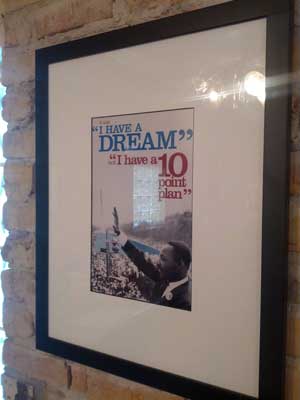Just finished a pretty dense read by Gabriel Lenz, Follow the Leader: How Voters Respond to Politicians’ Policies and Performance, and yes, it does include math.
However, it is a very interesting read and I strongly suggest you take a gander.
The main question I (the author) set out to answer is, which view of democracy best reflects modern reality? Do citizens lead politicians on policy? Do they judge them on performance-related characteristics? Or do they merely follow politicians?
The author’s conclusion(s)?
Voters for the most part focus on what the author calls performance-related characteristics, such as previous success in office and trustworthiness.
The voter thinks: “This politician has the personal traits I think a politician should have. This politician has done a good job in previous political positions.” In this view, citizens don’t directly lead politicians on policy, but they do lead on performance, throwing out incompetent or corrupt incumbents.
Most of the time voters apparently failed to judge politicians on policy—at least during campaigns.
At times, however, public policy did interest the masses. In these unusual cases, politicians appeared to follow voters.
Incumbents facing widespread public concern on issues that disadvantaged them responded strategically, adopting policy stances that mollified the public,
Instead of finding that policy issues influenced votes, the reverse was usually found : voters first decided to support a particular politician, then adopted that politician’s policy views.
WOW! When you put these findings together and take in the possibility that the author’s hypotheses are true, it has wide spread implications for how we run campaigns.
No, this is not a book review and I am skipping the math, additional nuances of the research, and more importantly the methodology, but let’s just agree that his findings warrant a much larger discussion.
However, this research would appear to confirm the recent flood of additional research about the cognitive abilities of our brain.
We are busy voters and our brains attempt to streamline life for us by creating shortcuts, habits, and heuristics. Why would issues be any different?
President Obama Illustration
A perfect example of this research is President Obama and his ’emerging’ stance on gay marriage.
In the first campaign, how many Democrats did you know who did NOT AGREE with President Obama’s then OPPOSITION to gay marriage, but voted for him regardless?
Put another way, gay people, who desperately wanted to get married voted for a President in direct opposition to gay marriage, and then rationalized an answer to solve this dissonance.
However, when the issue reached a critical mass inside the Democratic caucus, what did President Obama do? He simply switched positions.
Yes, some activists that are single issue voters, who care passionately about almost exclusively this issue, may have stayed home and not voted in the reelection campaign or not donated (probably the larger concern). The point is the number of these voters are so incredibly small.
Most Democrats, for whatever reason, decided they liked President Obama for reasons they may not even understand, and they were voting for him, come hell or high water. When they didn’t care much about an issue or they had no opinion, they adopted the opinion of their chosen politician.
Another example? Remember back to the debate on Obamacare or even during the Supreme Court hearings – a lot of these voters didn’t really know the first darn thing about Obamacare. The people that wrote the law don’t even know what is in it or how to implement it; however, ask an Obama supporter if they were “for” it, most will answer emphatically yes! They adopted their President’s stance on the issue. Just don’t ask them why.
The point is we all do this to some degree. We don’t have the time, energy or desire to learn about every issue. (This is why the simplistic “get informed” approach to so called low information voters is wrong.)
Campaign Implications
I am not saying as campaign professionals that we can ignore issues. The people who participate in primaries, volunteer for campaigns, and donate to campaigns will care about issues.
However, we will need to change our focus and get our candidates and even issue campaigns to tell better stories that pack an emotional punch. These stories can’t be just a litany of policy points.
In fact, I propose issues only be used to illustrate larger themes of values and character. In other words, Issues are subordinate to the story, and the story is about competence.
When I attempt to explain all of this to candidates or their campaign managers, their initial reaction always seems to be ‘horror’ or ‘disgust’.
I then point them to a poster I had made for the office. The poster is of Martin Luther King, Jr. standing on Washington’s mall during a small, little speech he gave.
The caption?
” It was ‘I have a Dream’, not ‘I have a 10 point plan.’ “
Conclusion
Sometimes a picture is worth a thousand words.
However, If the candidate persists (especially my conservative candidates), I may point them to an additional quote in the study:
“In fact, many people— including the Founding Fathers— have argued that voters should vote, not on policy, but on performance– related characteristics such as character.” Lenz, Gabriel S. (2013-01-29). Follow the Leader?: How Voters Respond to Politicians’ Policies and Performance
I think I may need a new poster in the office.

